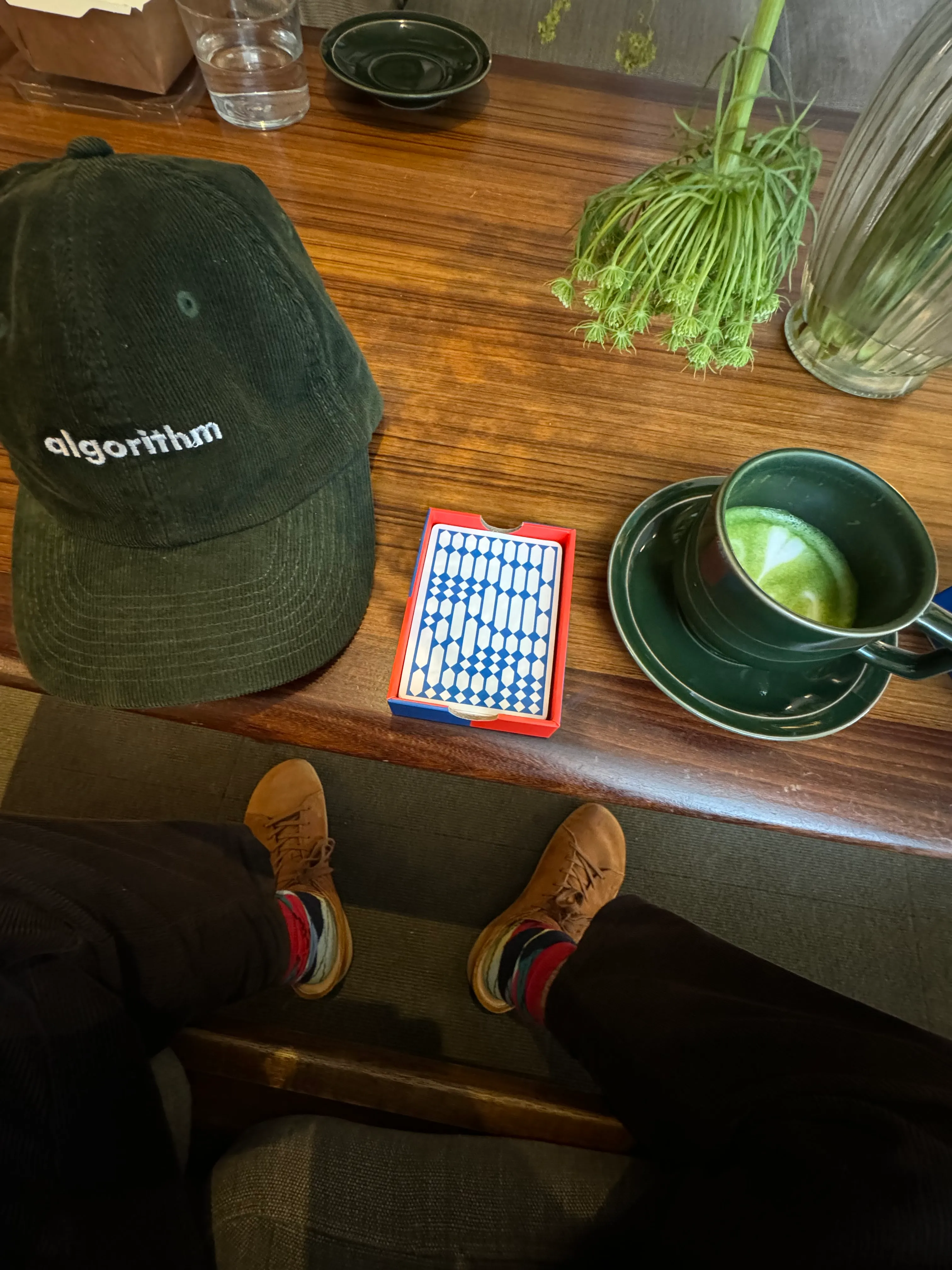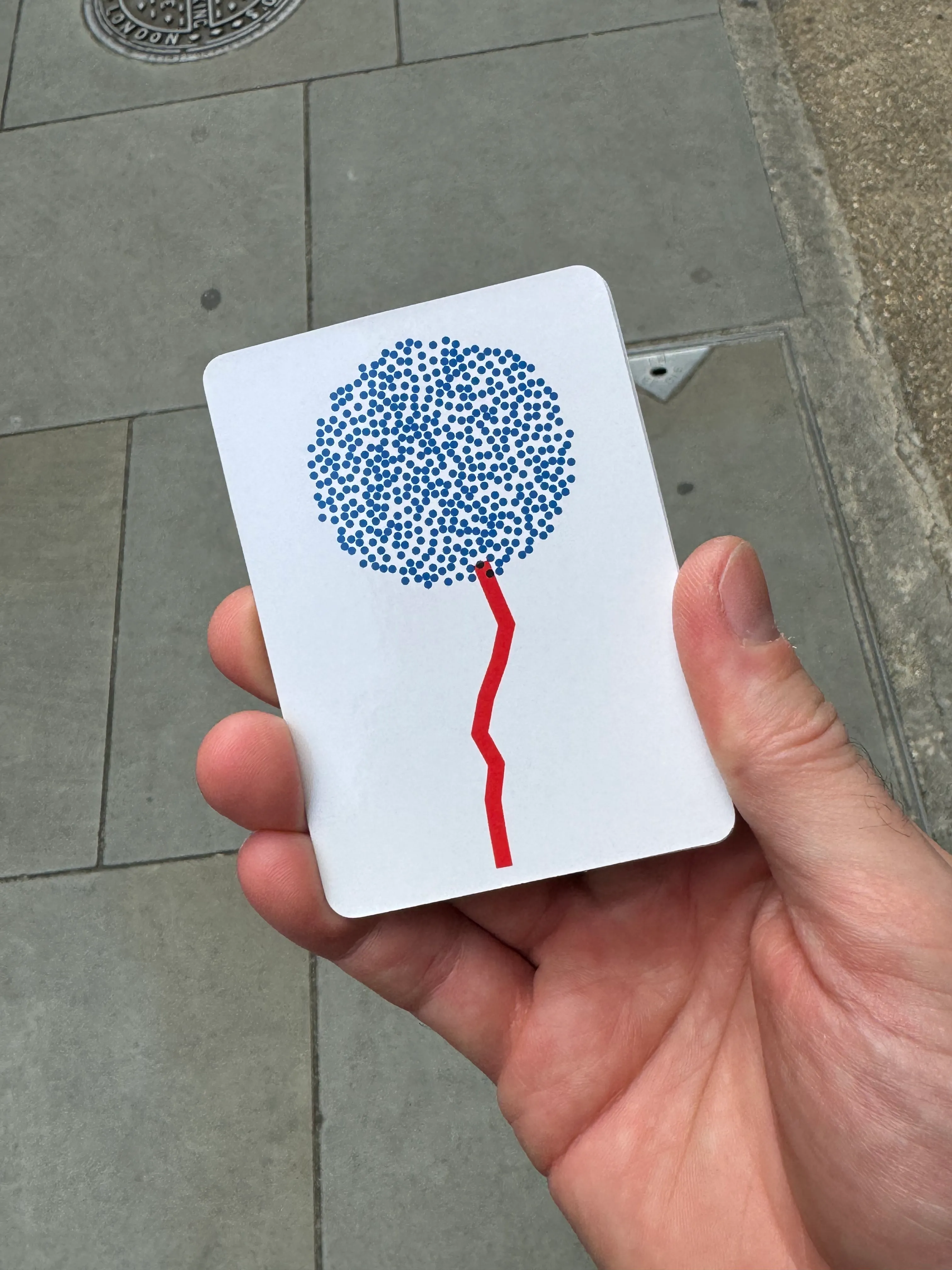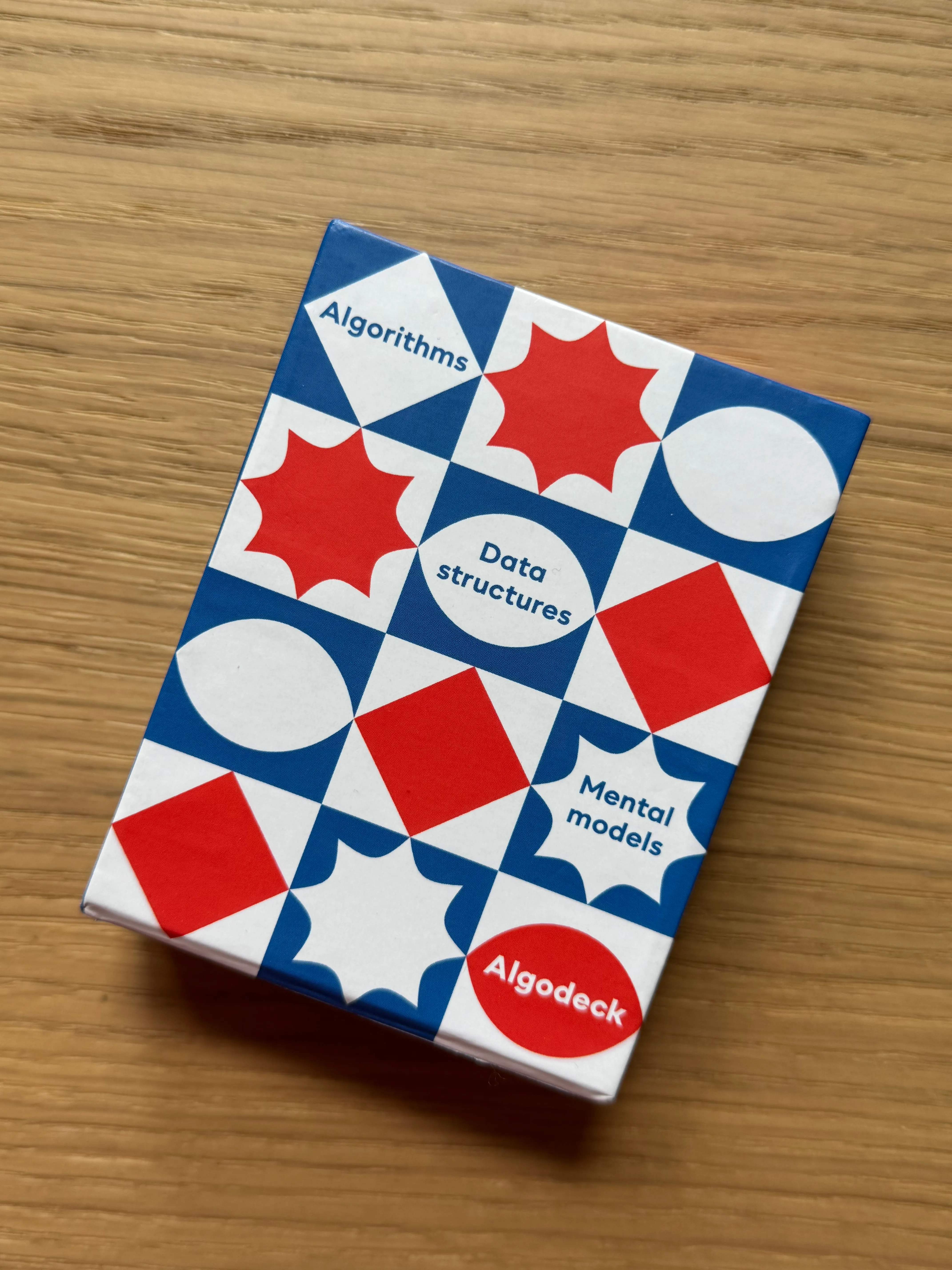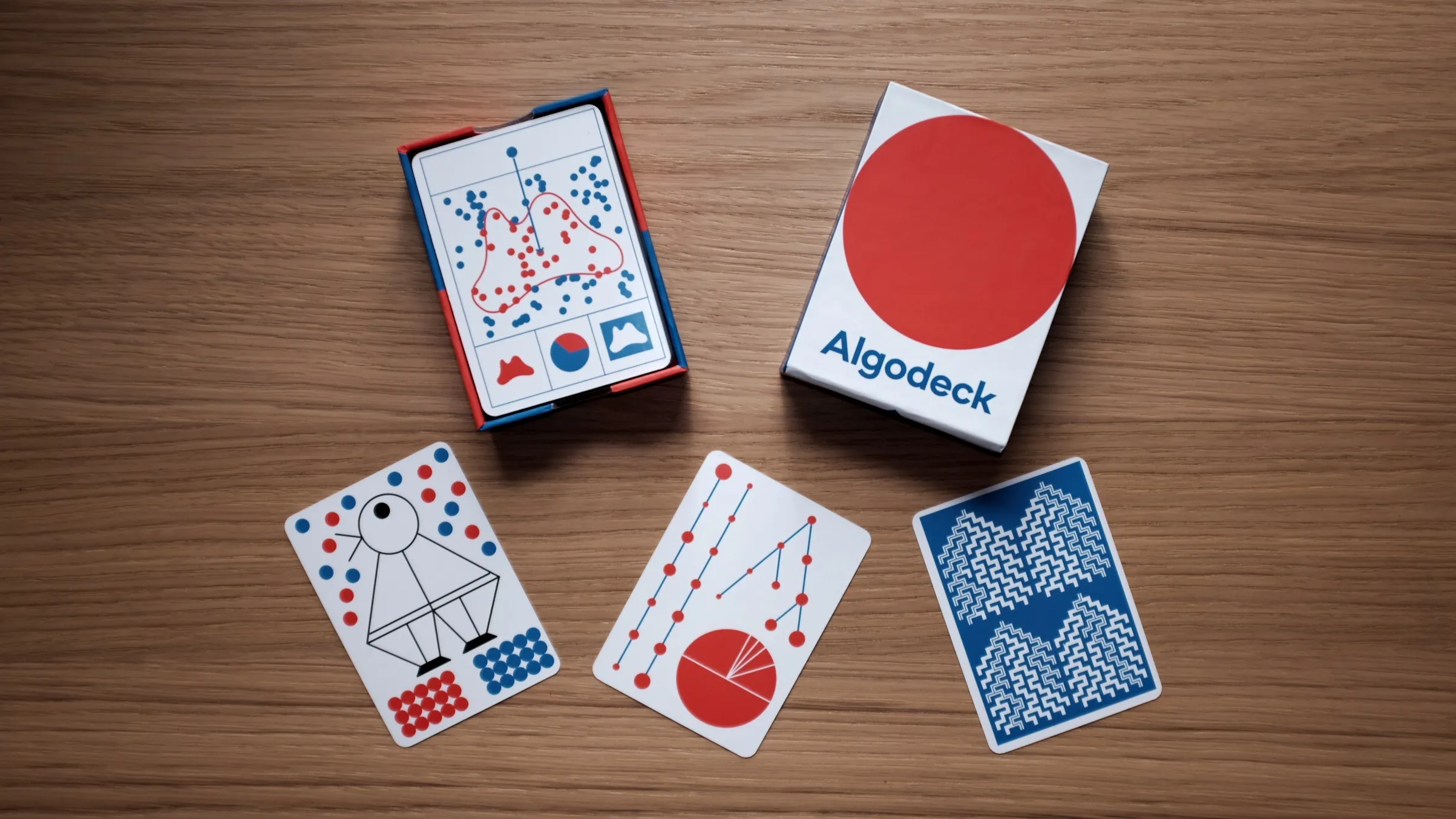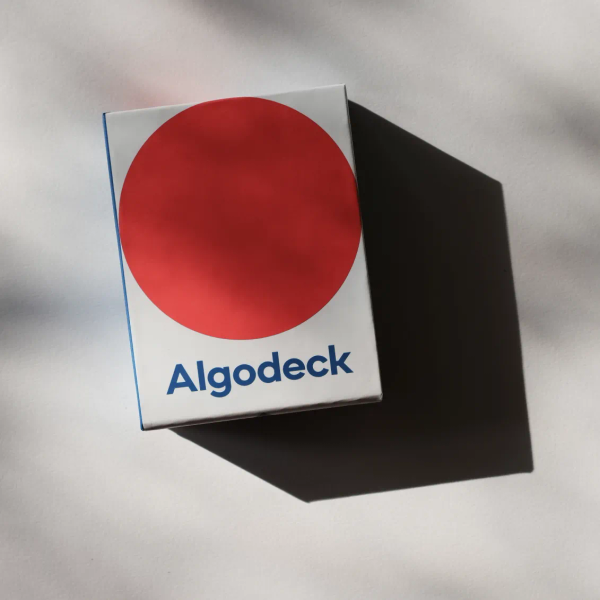
Algodeck is a computer science learning companion and a problem-solving tool. It fits in your pocket, is approachable, and covers a wide range of concepts from computer science, mathematics and science that will sharpen your thinking and how you approach problems.
- A curated set of fundamental datastructures and algorithms
- Essential techniques to frame and solve problems
- Algorithm design patterns
- Reusable problem solving tools
- Eye opening mental models from computer science, mathematics and science
About the cards
Each card in the deck covers key concepts in computer science, mathematics and science — helping you sharpen your logic, deepen your understanding, and improve your approach to solving complex problems.
You will find fundamental datastructures and type of algorithms. Expect cards on: list, arrays, recursion, graphs, and many more.
Expect also cards covering mental-models from mathematics and science. The cards are a collection of my favourite algorithms, data structures, and mental models — things I learned at university and on the job as a Software Engineer.
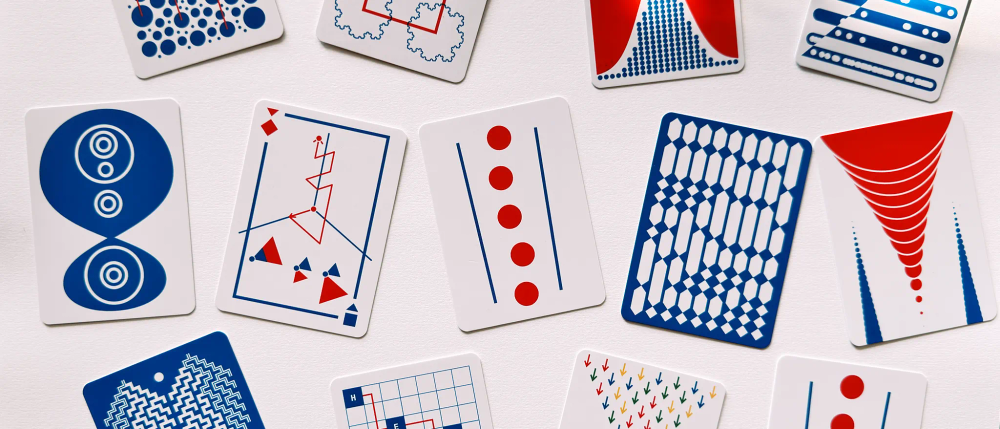
About the deck
Algodeck is a pocket-sized learning and problem-solving tool.
Many books and websites teach you how to code but few teach you how to think like an engineer. Algodeck fills that gap—bringing together key ideas from multiple disciplines in a format that’s accessible, inspiring, and built for curious learners.
- 54, 3.5'' (W) x 4.5'' (H) cards
- Drawer box
- Thick card stock
- Design coded in Python with DrawBot
- Text typeset with Latex
- Set in IBM Plex Mono and neue Radial C typeface
- Designed in London UK
- Printed and bound in China
- ISBN 978-1-9191641-9-9
Learning and combining ideas from different disciplines gives you a superpower: wisdom to solve problems and make better decisions. As famous investor Charlie Munger puts it, you need to “build a latticework of mental models” so you can see problems through multiple lenses and perspectives. Mental models are high-level nuggets of knowledge that help us structure our thoughts and reasoning.
Life constantly presents us with problems, big and small. Most of the time, we don’t even notice how we solve them. Some problems are simple, like deciding what to eat for dinner. Others are more complex, like planning a holiday: Where should you stay? Which train should you catch after landing? How do you handle unexpected delays? We’ve all been there. Problems like these can be surprisingly computationally complex — and how you think about them makes all the difference. In these situations, computer science concepts become powerful tools, equipping you with practical strategies and tactics. Data structures teach you how to organize your thoughts efficiently, and algorithms show you how to tackle problems step by step, using logic and effective strategies.
Whether you’re a beginner or an expert, you’ll find something valuable in Algodeck to expand your mind and refine how you approach problems.
FAQs
Is it a game? Can I play poker?
No. What you do with the deck is up to you: use it as flashcards, read it like a book, use cards like prompts, etc. I do hope someone comes up with a game, though!
How many cards are in the deck?
54!
I'm not a developer/software engineer, will the deck be useful to me?
Absolutely yes! Algodeck focuses on reusable knowledge from computer science, mathematics and science. It will teach you reusable skills, such as computational thinking and numeracy.
Why cards?
The format, with poker-sized cards, provides the opportunity to break away from traditional and dense books on the subject. Cards bring an element of play and non-linearity. Learning paths vary from one person to another, and cards allow us to follow our curiosity. Most books on computer science are large and somewhat challenging to read for beginners. I believe there is space for accessible, inspiring and engaging materials that are easy to digest.
When is the best time to use these cards?
You might be new to computer science and use the deck to learn. You might be stuck on a problem and need new perspectives or tools. Or you are just a curious one. Algodeck is whatever you want it to be: a coffee table book, flashcards, or a source of ideas and tools to solve problems. Use the cards at work, at home, and the coffee shop.
Shipping, taxes, duties and what nots
Algodeck ships anywhere in the world (if there is a will, there is a way!). I want to put Algodeck into as many hands as possible. In most cases, taxes and duties will be prepaid for you (all inclusive).
